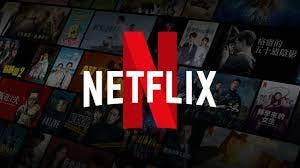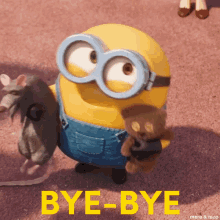All these sounds are tied to the film industry.🍿🎬
If you recognized all of them, congratulations! You deserve a “movie freak” award😅😅
Welcome to today’s episode of IP Gists. This is our first update in August.
That one-month break felt like forever but we’re here again..
It feels so good to be back!
If this is your first time on this space, I’m glad to have you here. Don’t fail to hit the subscribe button😊
Now, let’s get back to our sounds!
The first sound is owned by Netflix.
The second sound is the roar of Leo owned by the American movie company, MGM Studios.
The last sound is the property of 20th Century Fox.
You can scroll up to listen to them again if you want to.
Actually, the interesting thing about these sounds is that they are all registered as trademarks.
This means that the companies that own them have exclusive rights over them such that no other person can use those sounds without obtaining permission first. The exclusive rights also give these movie companies the room to enjoy the commercial benefits of their sound marks.
You might be wondering…
IS IT ONLY MOVIE COMPANIES THAT OWN SOUND MARKS?
Of course not!
Any brand at all can own and register a sound mark.
The popular burger brand, McDonald’s, has a registered sound mark, “I’m Lovin’ It”
The key requirement for the registration of a sound mark is distinctiveness.
The proposed sound mark must be unique in such a way that it distinguishes that particular brand from other similar ones.
If the sound mark is generic, it will not be registered. For instance, in 2021, the European Court rejected the attempt of a beverage company to trademark its sound because the sound that was sought to be registered was not distinctive.
The company, Ardagh Metal Beverage Holdings, brought an audio file before the European Union Intellectual Property Office (EUIPO) for registration. The audio file consisted of a sound made by the opening of a drinks can, followed by silence and a fizzing sound.
Almost every canned drink makes a fizzing sound when opened🤷♀️🤷♀️
So, EUIPO refused the registration and when the decision of the EUIPO was confirmed by the Board of Appeal, the company decided to head to the European Court of Justice.
The European Court held that the proposed sound mark is already associated with drinks generally; thus, the public will not be able to differentiate the company's brand from that of other companies.
So you see, to qualify for registration, it’s important for a sound mark to be distinctive.
Netflix's sound is distinctive and guess what?
That sound is a combination of a reversed electric guitar sound and the sound effects created by knocking a wedding ring on the side of a cabinet.
A wedding ring… Wow. Such creativity! You could never have imagined right?😅😅
As a brand owner or a potential one, I’m sure you're already thinking of how to create and register your sound mark.
You might be shocked to discover that it’s not every country that allows for the registration of sound marks.
Nigeria is a typical example.
Last month, we had an opinion poll on this issue.
70% of the persons that participated were saying that sound marks can be registered in Nigeria.
The Nigerian Trademarks Act does not expressly include sounds as a type of mark eligible for registration and protection.
However, it has been speculated that since Section 9(1)(e) of Nigeria's Trademark Act allows for the protection of “any other distinctive mark" aside those expressly stated, then sound marks can be protected under this provision. This is an attempt to give that Section a wide interpretation. For now, Nigeria's trademark laws do not provide for sound marks.
That notwithstanding, sound marks can be registered in the following francophone African countries: Benin, Burkina Faso, Cameroon, the Central African Republic, Chad, the Comoro Islands, Congo, Côte d’Ivoire, Equatorial Guinea, Gabon, Guinea, Guinea-Bissau, Mali, Mauritania, Niger, Senegal and Togo. This is because they are all members of a regional intellectual property organisation called OAPI and OAPI recently amended its law (Bangui Agreement) to expressly permit sound mark registration.
Other countries such as USA, UK, India, Thailand etc. also protect sound marks.
We’ve come to the end of this week’s IP Gist!
Do you have any opinion, question or general comment about this episode? Don’t hesitate to let me know on the comment section.
If this episode was enlightening, hit the share button and help me circulate this content to a wider audience.
Anticipate another episode of IP Gists next week Monday.











